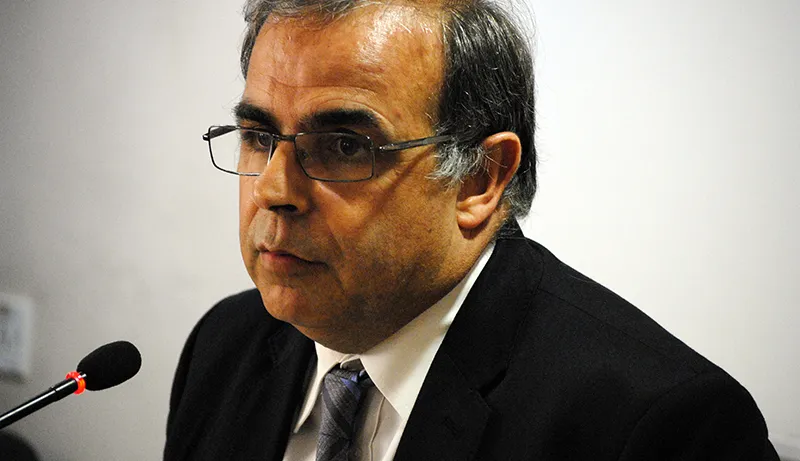-
CENTRES
Progammes & Centres
Location
Talking about the challenges confronting the Nawaz Sharif government in Pakistan and the implications of the political transition on the region, Dr. Frederic Grare said the problems facing his government are huge, which cannot be resolved overnight and need long-term solutions.

Pakistan elections were a positive development for democracy in Pakistan. It highlighted the resolve of the people to see a democratic transition take place in the country for the first time, which was evident from the high voter turnout despite the threat posed by the militants.
These were some of the observations made by Dr. Frederic Grare, Director and Senior Associate, South Asia Program, Carnegie Endowment for International Peace, who spoke at Observer Research Foundation on June 14, 2013.
Talking about the challenges confronting the new government in Pakistan and the implications of the political transition on the region, Dr. Grare said the large mandate won by Nawaz Sharif gave a great degree of legitimacy to his government and it gave him the strength to bring the country together. However, the problems confronting him are huge, which cannot be resolved overnight and need long-term solutions. Only time will tell if he is capable of tackling these problems effectively.
The most crucial challenge for the new leadership, Dr Grare said, would be the civil-military relations. Nawaz Sharif has had a complex relationship with the military; he is the only Prime Minister to have sacked two army chiefs. There are already signs that Nawaz Sharif would not try to impose his rule on the military establishment. This is evident from his approach to Pervez Musharraf as he is blaming Musharraf, the individual, for the 1999 military coup, and the not military establishment on the whole. It is likely that Nawaz Sharif would take a more cautious approach towards the military.
On the foreign policy front, relations with the US, India and Afghanistan are going to be crucial tests for the Sharif government. The frustration with Pakistan in the US has been growing, but given the importance of Pakistan’s strategic location with respect to the US drawdown in Afghanistan, the US cannot afford to cut off Pakistan completely. Thus, there is the possibility of the Americans making some concessions to Pakistan. The issue of drones and reconciliation with the TTP are likely to be two major irritants in the relations, but one should not overestimate their importance either. Pakistan is unlikely to demand an immediate end to the drone attacks, and similarly the possibility of working out reconciliation with the TTP, something that the US is opposed to, remains remote.
As far as Afghanistan is concerned, there is no clear policy on Pakistan’s part towards Afghanistan. They, like everyone else, realise that the situation is changing and are trying to muddle their way through it. It is possible that Pakistan may be cautious in supporting radical Islamic elements in Afghanistan. There is a possibility of the Pashtun nationalism in Afghanistan and the tribal areas of Pakistan taking an Islamic orientation, and if there were to be such a change in the nature of Pashtun nationalism in the region, the idea of ruling southern and eastern Afghanistan through Islamic proxies may be counterproductive. The best option, thus, for Pakistan is a government in Kabul, where its proxies are well represented. It is for this reason that Pakistan has to support the reconciliation process in Afghanistan.
Finally, the Nawaz Sharif government provides a good window of opportunity for improving relations with India. Sharif realises the importance of improving relations with India, especially for Pakistan’s economic well-being. It is for this reason that the Pakistan military may also support such a process of normalising relations with India. However, the issue of terrorism is something that has to be dealt with in order to improve the bilateral relations. India should be open to engagement with Pakistan on account of its good behavior, but should be cautious while approaching any talks with its neighbour.
The views expressed above belong to the author(s). ORF research and analyses now available on Telegram! Click here to access our curated content — blogs, longforms and interviews.